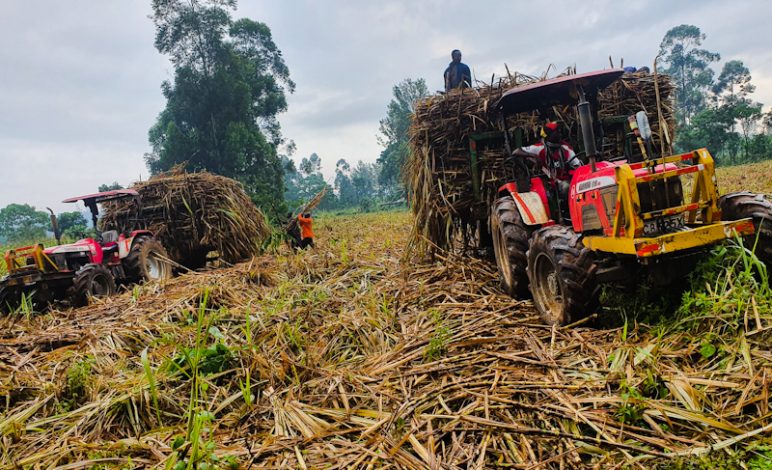The Kisumu County Government, under Governor Anyang’ Nyong’o, is opposing the national government’s plan to lease Chemelil and Muhoroni sugar mills, arguing that it violates legal standards and risks monopolisation, which could harm farmers and public assets.
The Ministry of Agriculture intends to lease Chemelil Sugar Factory to Kibos Sugar and Allied Industries Ltd. and Muhoroni Sugar Company to West Valley Sugar Company, each for 30 years.
Nyong’o criticised the lack of public consultation, stating, “This ill-conceived leasing agenda is not just illegal; it is a threat to land rights, community cohesion, and the future of the sugar industry in Kisumu.”
Details of the Proposed 30-Year Leases
He further argued that the 30-year leases would “disenfranchise local farmers, robbing them of land and economic autonomy,” citing violations of Articles 10, 11, 60, and 62 of the Kenyan Constitution, which mandate public participation, transparency, and land protection.
Nyong’o also highlighted the opacity of the process, calling it an “economic coup” that undermines prior judicial victories for public ownership and breaches procurement laws.
Concerns Over Leasing Companies and Land Transfers
The county government raised concerns about the leasing companies’ capacity—Kibos, incorporated 16 years ago, and West Valley, only five years old.
Additionally, they allege that approximately 15,000 hectares of prime land belonging to Miwani Sugar Mills are being transferred to Crossley Holdings Limited through unclear means, despite a 2023 High Court ruling blocking a similar tender.
This transfer, reportedly facilitated by an out-of-court deal with a receiver manager, impacts over 60,000 farmers and threatens critical infrastructure on the factory land.
The land in question—2,779 hectares in Chemelil, 1,600 in Muhoroni, and 11,000 in Miwani—is public land managed by the National Land Commission but held in trust by county governments.
Nyong’o noted that the Leasing Transition Committee excludes county representation, undermining local oversight, and emphasised, “Agriculture is a devolved function under Schedule 4 of the Constitution. Any national action excluding county input is unconstitutional.”
At full capacity, Kenya’s sugar industry can produce over 1.3 million metric tonnes, but it currently operates at 70% of its installed processing capacity.
The Ministry of Agriculture estimates that the industry supports 17% of Kenya’s population, serving as a major employer across 15 counties in the Nyanza, Rift Valley, Western, and Coast regions.
However, the Kenya National Federation of Sugarcane Farmers and the Kenya Union of Sugar Plantation and Allied Workers (KUSPAWU) support the lease plan, expressing optimism after a meeting with Agriculture Cabinet Secretary Mutahi Kagwe that it could revitalize the Western-Nyanza sugar belt after years of mismanagement.
Jaswant Rai Secures Nzoia Sugar Factory Lease
Meanwhile, Jaswant Rai has secured a 30-year lease to operate the state-owned Nzoia Sugar Factory in Bungoma.
The deal includes clearing over KSh 200 million owed to farmers before the financial year ends and retaining all employees for at least one year. Factory board chairman Alfred Khang’ati confirmed Rai’s takeover would occur within the coming week.
Nzoia Sugar, established in 1975, is 98% government-owned, with Fives Cail and the Industrial Development Bank holding 1.13% and 0.93% stakes, respectively, per a 2021 audit.
The company manages a 3,600-hectare nucleus cane estate and serves 23,500 hectares in its outgrown zone.




